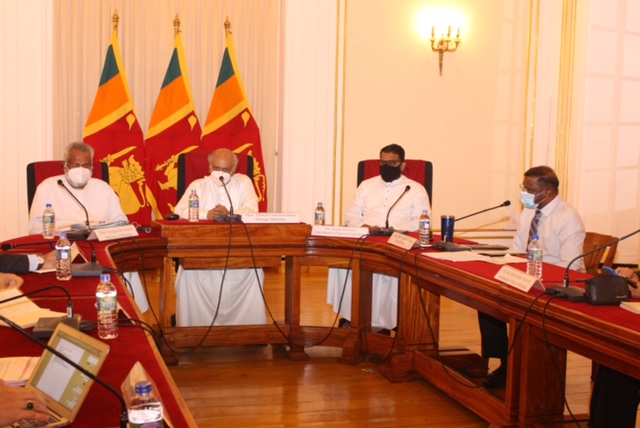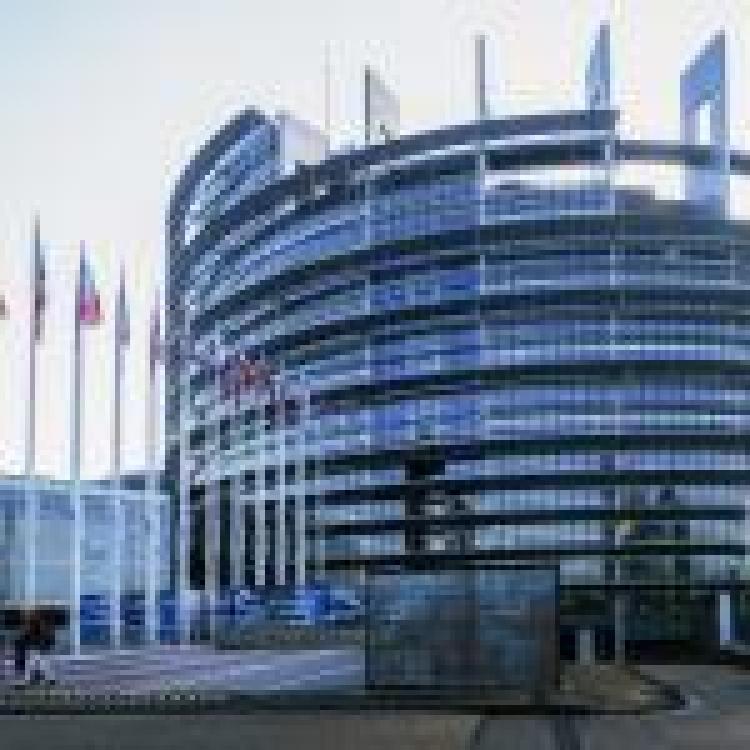
The Sri Lankan Foreign Ministry claimed that the resolution passed by European Union (EU) parliament "contains factual inaccuracies" and fails to take into consideration the apparent "multifaceted progress" in terms of reconciliation and development.
Last week, the EU passed a new resolution on Sri Lanka expressing “serious concern at the rapid deterioration of human rights” on the island and urging the Council to consider targeted sanctions against senior Sri Lanka officials accused of war crimes.
The resolution also calls for Sri Lanka to repeal its “abusive and draconian” Prevention of Terrorism Act (PTA) and to immediately suspend the “deradicalisation” regulation.
"At the outset, the Ministry wishes to state that provisions of the Prevention of Terrorism Act have been invoked to address heinous acts of terrorism committed on its people. In this context. It is recalled that the Easter Sunday terrorist attacks of 2019 resulted in significant loss of life, including of several EU nationals," the Foreign Ministry said in a statement in defence of the notorious legislation.
The PTA, which facilitates detentions without charge, has not been repealed yet, despite Sri Lanka's commitment to do so under GSP+ and the UN Human Rights Council Resolution 30/1. Earlier this year, Sri Lanka announced new regulations to the PTA which will allow for the state to "de-radicalise" and "rehabilitate" individuals who hold "violent extremist ideology."
Sri Lanka lost access to the trade concession due to its abysmal human rights record in 2010, but was granted access to the trading scheme in 2017, depsite widespread criticism from Tamil victim-survivors and civil society.
"The Government is in the process of revisiting provisions of the Prevention of Terrorism Act, in keeping with its commitments, as has been communicated to the EU. Towards this endeavour, the Government is studying existing legislation to propose necessary amendments, and will also draw on international best practices adopted by other jurisdictions," Sri Lanka added.
The Sri Lankan Foreign Ministry said it "rejects" the claim the PTA has been "systematically used for arbitrary arrests and the detention of Muslim or other minority groups in Sri Lanka," depsite the state's escalating use of the PTA as a tool to clamp down on Tamils and Muslims in the North-East and across the island.
Last month, as the Tamil nation marked Tamil Genocide Day, Sri Lankan security forces arrested a group of Tamils under the PTA, for gathering at a beach in Batticaloa, to remember the tens of thousands of Tamils that were massacred at the end of the armed conflict by Sri Lankan security forces.
Sri Lanka went on to add that domestic mechanisms including the Office of Missing Persons and the Office of Reparations Mechanisms were established to "address issues of accountability, and to achieve continued progress in reconciliation." However, Tamil victim-survivors and civil society have expressed their lack of faith in domestic mechanisms as they have historically failed to provide meaningful accountability or lead to prosecutions. Tamils in the North-East and in the diaspora have consistently called for an international accountability mechanism to provide justice and accountability for the crimes committed by the Sri Lankan state.

